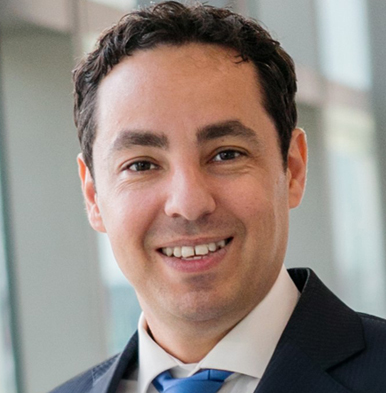A new piece of simple technology armed with a complex algorithm could give dementia patients freedom to wander unattended while simultaneously giving their carers the ability to monitor risk levels. Here, DR CONRAD ATTARD explains the theory behind the study and why they’re recruiting volunteers to join the cause.

Dr Conrad Attard
In 2013, a Euroderm study showed that there were an estimated 5,301 patients in Malta living with dementia: statistically, that meant 1.26 per cent of the population. And the numbers are expected to have risen since then, too.
The condition, which manifests itself as memory disorders, personality changes and impaired reasoning, drastically affects the lives of those suffering from it by making common daily tasks incredibly dangerous, particularly as dementia sufferers can not only forget the faces and names of their loved ones but also forget to eat, consume stuff that is not fit for humans, and wander into streets without noticing oncoming cars, among other things.
Yet it also affects the lives of their relatives, friends and, more directly than most, their carers, as people with dementia need to be constantly monitored… This, however, often means that, for their own safety and well-being, dementia patients are not really allowed to go anywhere without supervision, further diminishing their independence…
“But this can have many other repercussions,” says Dr Conrad Attard, a Computer Information Systems lecturer within the Faculty of ICT at the University of Malta (UM). “This makes people suffering from the illness less active, while also putting an additional burden on the carers.”
It was for this reason that, Dr Attard decided to start working on a concept that would solve both problems.
“We are looking into creating a wearable or implanted device that uses a pervasive electronic monitoring (PEM) system,” he continues. “This device, which would use software created specifically for it with dementia sufferers in mind, would track patients as they move about and alert their carers about any potential dangers when and if they are faced with them.”
The algorithms needed to make such a device accurate and efficient is in no way simple to create, however, as the software would need to independently identify whether the wearer was simply ‘wandering’ or walking with purpose, whether their destination is safe, and anticipate danger early enough to give carers the time to get to patients. The device would also need to be connected to a system that alerts carers in real-time.
As such, the project is expected to take years to complete, but the first phase, which involved numerous focus groups with doctors, nurses, physiotherapists, occupational therapists and the management of St Vincent de Paul Residence (SVPR) has already been completed. Now, with that wealth of knowledge in hand, the team behind this project is getting ready for the next phase: creating the data that will drive the algorithm.
Helping Dr Attard with this are Mr Joseph Bonello from the same Department at UM, and Dr Ronald Fiorentino from SVPR. This project would not have been possible, without the support of ISL Ltd, who have come on board with an investment, through RIDT of €21,000 for this project.

However, apart from the financial support, the project requires a lot of manpower to reach its final aim. “We have so far received over 70 requests by volunteers to help us create the data needed in the lab we have purposely set up for this study,” Dr Attard says. “Kicking off this summer, in fact, the next phase will see volunteers recreate typical patterns of wandering [such as zigzagging and walking backwards and forwards followed by human activities that simulate dangers identified in previous studies], to form the base of the system.
“The response has been incredible so far, though. In fact, one company located close to University has offered up paid hours by its employees to help with the creation of a large dataset simulating dangers patients can come across when wandering… Nevertheless, the more people help us out, the faster we can turn this idea into reality!”
The project still has a long way to go, both in terms of actual research and also in terms of financing it. Even so, it’s all steam ahead for Dr Attard and his team. So, if you’d like to help out, you can send an e-mail with your details and availability to volunteer@pem.space
Help us fund more projects like this, as well as research in all the faculties, by donating to RIDT. Click here for more information on how to donate.
